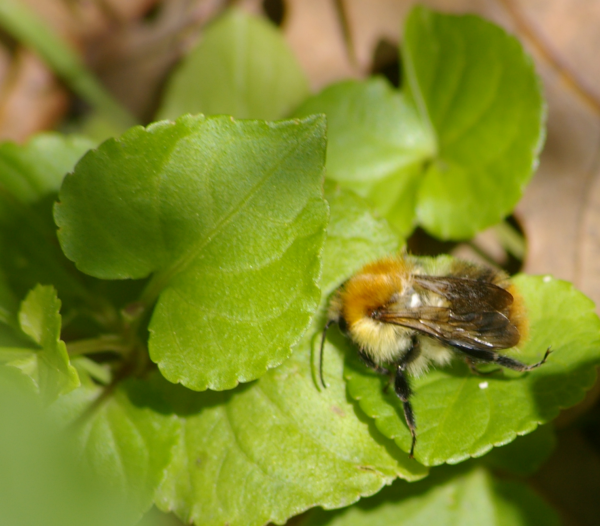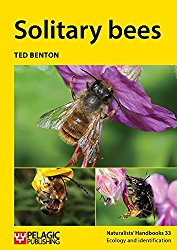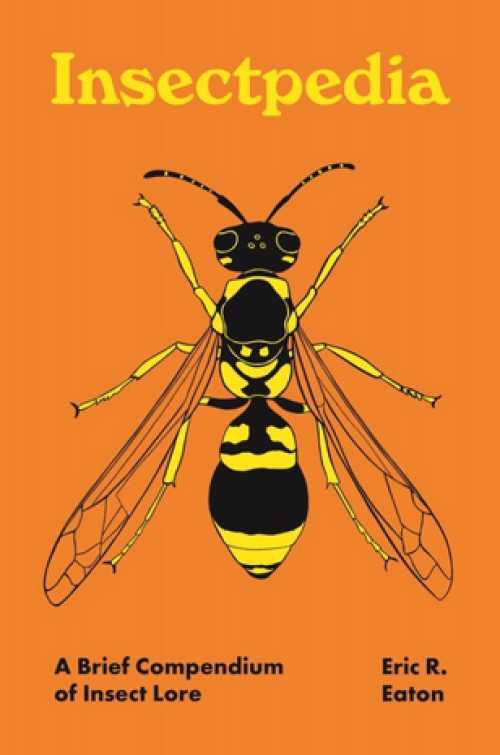Finding Dead Mason Bees In Cold Weather
At various times of the year, I receive queries from concerned readers who have found dead bees. Usually they are bumble bees, sometimes honey bees, but occasionally solitary species.
With the cold snap in Europe, I had a query from Germany regarding dead bees by a solitary bee hotel.
Below you can read the query and my response.
Although there were a few casualties, fortunately there is a happy ending.
Dead Bees By The Bee Hotel
'Hello from chilly Munich!
We have a large nest box on our sheltered & dry balcony and were thrilled last year to see it being used by a mixture of bees (solitary, we presume).
But upset this morning to see that at least 4 of the nesting tubes were unblocked and the bees had come out but were on the floor, half dead.
We're at a loss as to why they have suddenly hatched - it's freezing cold here and we've had awful weather the last couple of weeks.
There is certainly no source of nectar for them nearby.
Really sad that we have to leave them to die but we are not sure what to do.'
- From Fiona in Munich, Germany
My response:
I am sorry to hear of this sad episode, and thank you for your concern for bees.
Yes, it sounds very much as though the cold snap is to blame.
I suspect these are mason bees, and the dead bees will be males - although it's possible some of them are females.
Males emerge first, and hang around nests waiting to mate with emerging females.
I think they (the males) might have been caught out by the cold weather as they waited for females.
There is nothing you can do in this instance, because the weather seems to be the factor. However, hopefully some of the bees will not emerge from the other tubes until later, and the weather might be a little better then.
The only thing you can do is try to provide early flowering nectar plants for bees such as fruit trees (apples and pears), Salix, early flowering shrubs (if you have space), see:
If you want to add plants to your garden quickly, a few potted winter heathers might help, and some spring flowers too.
As I said, hopefully more bees will emerge from the other tubes a little later.
Following my response, Fiona wrote back to me with photographs:
Today has suddenly warmed up and we've been videoing the bees chewing their way out of the nesting tubes. Love them!
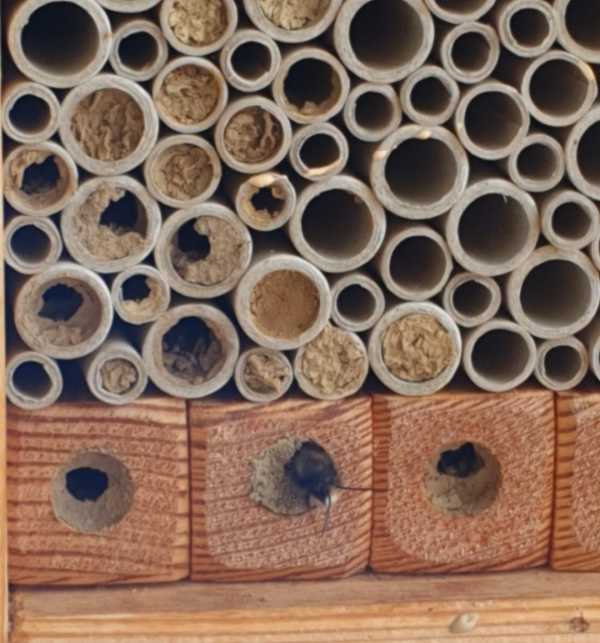 Image by Fiona in Munich, with permission.
Image by Fiona in Munich, with permission.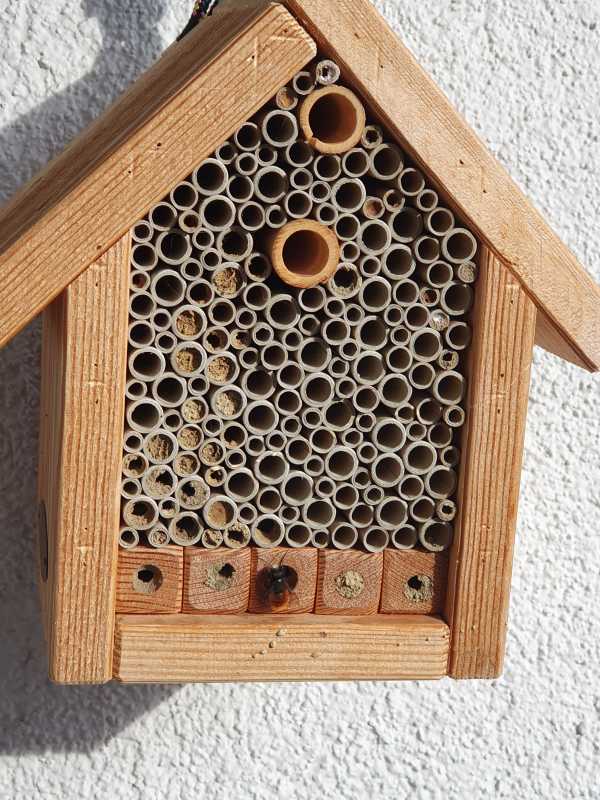 Image by Fiona in Munich, with permission.
Image by Fiona in Munich, with permission.
Well, I can confirm that the photographs clearly show that the bee hotel is inhabited by mason bees, (I believe the species is Osmia cornuta, the European orchard bee) and many of the nest cells remain sealed, meaning that hopefully, even more healthy bees will emerge shortly!
